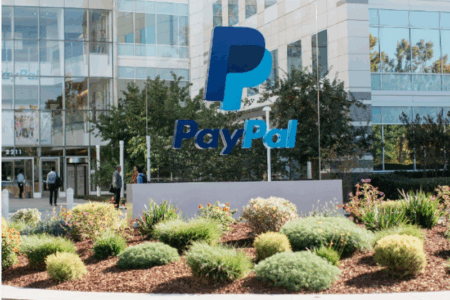As economies around the world go through a virtual shutdown due to the pandemic, many vulnerable sectors have also suffered untold financial pain.
Yet, there have been businesses that remained resilient despite this prolonged crisis.
Companies such as Sheng Siong Group Ltd (SGX: OV8) provide essential services such as necessities and so are allowed to continue operating without disruption.
Some businesses such as Facebook (NASDAQ: FB), Zoom Video (NASDAQ: ZM) and iFAST Corporation Ltd (SGX: AIY) have even thrived as more people rush to connect online and businesses shift to using digital resources to operate and communicate.
Some blue-chip companies have also performed well during this period, with Singapore Exchange Limited (SGX: S68) reporting record-high revenues for its latest fiscal year 2020.
Wilmar International Limited (SGX: F34), a component stock of the Straits Times Index (SGX: ^STI), is also riding on strong tailwinds and posting good results.
Does the commodities giant qualify as a great investment during these troubled times?
A commodities behemoth
Wilmar was founded back in 1991 and is a leading agribusiness group in Asia.
The group engages in a wide range of activities such as oil palm cultivation, sugar milling, manufacture of consumer goods, and rice and flour milling.
Wilmar has over 500 manufacturing plants and a distribution network spanning more than 50 countries and regions.
It also employs a multinational workforce of around 90,000 people.
The group was listed back in August 2006 and with an initial market capitalisation of just S$2.4 billion.
Over the last 14 years, Wilmar’s market capitalisation has surged more than 10-fold to S$28.3 billion.
Strong demand for consumer goods
For the first half of 2020, Wilmar reported a strong set of results.
Revenue jumped 12% year on year to US$22.6 billion while core net profit surged 49% year on year to US$636 million.
The group saw improved demand across all its divisions, with consumer products sales increasing significantly due to people eating more at home as they telecommute.
As Wilmar runs food operations that are deemed essential during the pandemic, the group has been allowed to operate without interruption as well.
Because of the strong financial performance, the commodities giant has upped its interim dividend from S$0.03 to S$0.04.
CEO Kuok Khoon Hong remains sanguine about the group’s prospects, stating that China, where Wilmar has the largest operations, has recovered earlier than other countries from the pandemic.
Wilmar also has numerous integrated complexes around the world that help to ensure a continuous supply of products even during lockdowns.
Listing of Chinese subsidiary
Wilmar had also recently concluded the successful listing of its 99.99%-owned Chinese subsidiary, Yihai Kerry Arawana Holdings Co., Ltd (YKA).
YKA’s IPO price was determined to be RMB 25.70 per share and the company was listed on the Shenzhen Stock Exchange ChiNext Board on 15 October.
The group raised a total of RMB 13.9 billion (around US$2.06 billion) from this listing.
The offer was extremely popular and was heavily oversubscribed. For offline investors, the IPO was 600 times oversubscribed while for online retail investors, it was nearly 1,750 times oversubscribed.
YKA’s share price has doubled since its listing and is trading at around RMB 52 at the time of writing.
Cyclicality and volatility
Of course, no discussion is complete without highlighting the risks of the business.
Being in the commodities sector, Wilmar is naturally reliant on commodity prices to earn its keep.
Such prices are a function of the market and are out of the group’s control.
Therefore, its results may fluctuate significantly due to the underlying volatility associated with commodity price movements.
There is also an element of cyclicality to the group’s operations.
As Wilmar is dealing with commodities, a boom in any one commodity will attract competitors to ramp up production, thereby increasing overall supply.
As supply rises to match or even exceed demand, prices will start to fall in line with the law of economics.
This cycle of peaks and troughs are inherent to the commodities business, as there are low barriers to entry and any player can enter and start producing the same products that Wilmar is manufacturing.
Get Smart: Good, but not great
While the above attributes point to a business that is witnessing strong tailwinds and good growth, I have to conclude that Wilmar is merely a good, rather than great, business.
The commodities giant may have the clout and track record to show, but its core business is still subject to the vagaries of the commodities market.
Without the ability to control its pricing, the group’s business may suffer from sharp falls in revenue and profit that are characteristic of commodity-type businesses.
With share prices battered to multi-year lows, many attractive investment opportunities have emerged. In a special FREE report, we show you 3 stocks that we think will be suitable for our portfolio. Simply click here to scoop up your FREE copy… before the next stock market rally.
Click here to like and follow us on Facebook, here for our Instagram group and here for our Telegram group.
Disclaimer: Royston Yang owns shares in Facebook, Singapore Exchange Limited and iFAST Corporation Ltd.





